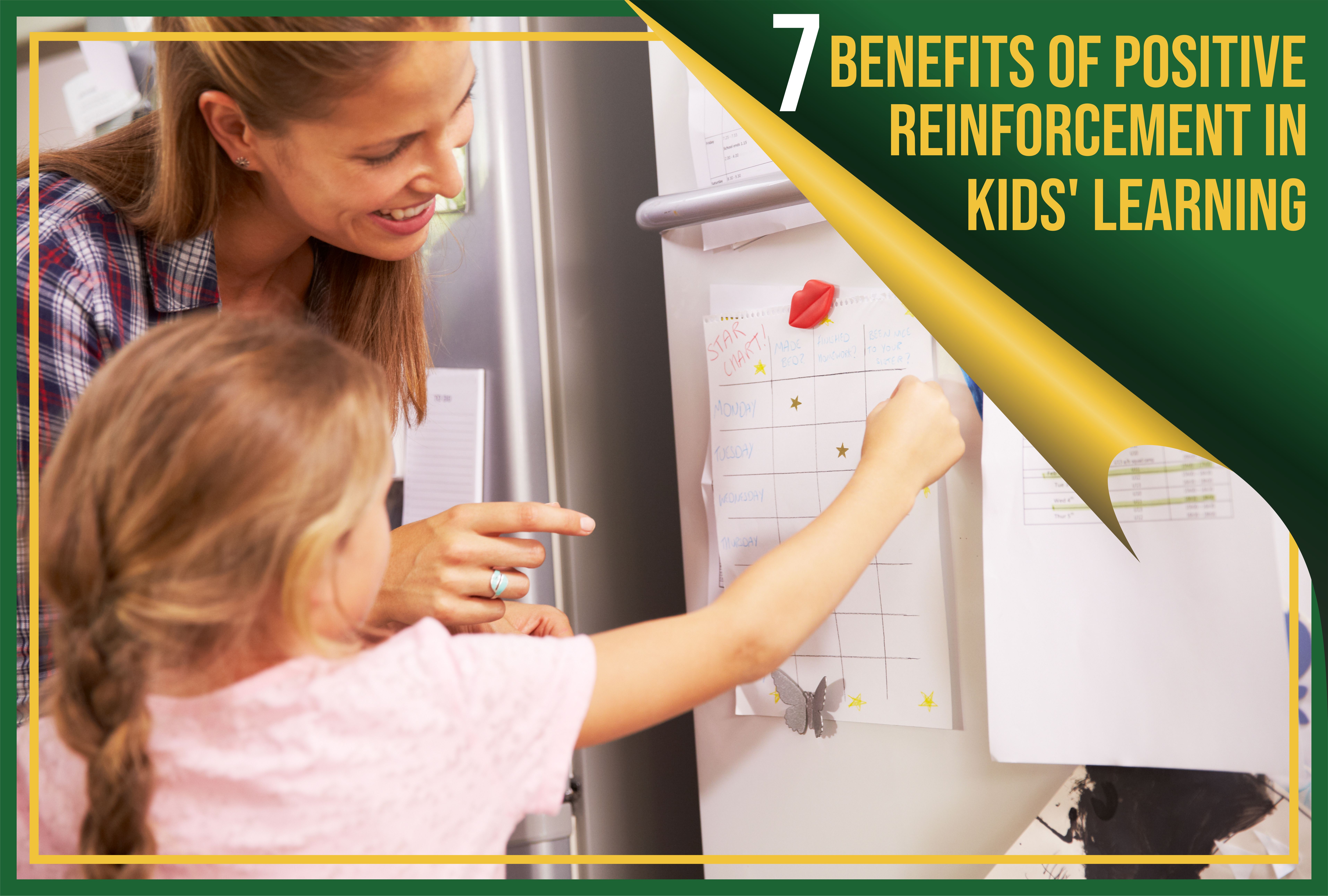7 Benefits of Positive Reinforcement in Kids' Learning
One of the most challenging facets of raising kids is getting them to behave appropriately and follow instructions. This is where positive reinforcement comes to play. Positive reinforcement is an approach that encourages the desired behavior by providing a pleasant consequence after the said behavior is displayed.
Aside from influencing positive behavior, positive reinforcement offers several other benefits, too. This approach has been shown to be an effective tool in getting kids to comply with rules and regulations, and learn new skills and knowledge. It is a key element in successful child development and learning. When children receive appreciation for their actions, they learn that those actions are desirable and will often repeat them in the future. This can have a wide range of benefits - from improved academic performance to better social skills.
Read on and learn how positive reinforcement can help your little ones learn better.
Positive reinforcement enhances kids' self-esteem
When kids are constantly being praised for their excellent behavior, they begin to feel good about themselves. They start to believe that they can meet expectations and behave well. As a result, their self-esteem boosts, and they become more confident in themselves.
The more confident a child feels, the better they will do in school and in other areas of their life.
It improves kids' relationships with others
Positive reinforcement also helps improve relationships. When children feel good about themselves, they are more likely to act politely towards others. They are also less likely to engage in aggressive behavior.
The ability to build healthy relationships with others is a vital aspect of developing social skills. It lays the foundation for future success in all areas of a child's life, from school to work to personal relationships.
It encourages kids to try new things
Kids motivated through positive reinforcement are more likely to take risks and try new things. They know that they will be appreciated for their efforts, no matter the outcome. As a result, they become more confident in trying out new things and are willing to step out of their comfort zones.
This is an important quality to have as it helps children explore their interests and develop new skills. It also allows them to discover hidden talents and develop a sense of identity.
Positive reinforcement strengthens the parent-child bond
Did you know that using positive reinforcement in raising children can also help strengthen the parent-child bond? Children feel appreciated and valued when they are praised, which fills them with a sense of security. In turn, they become more connected to their parents and are more likely to obey them.
A strong parent-child bond is essential for a child's development. It helps children feel loved and supported, which boosts their self-esteem and confidence.
It makes them look at failures differently
Teaching kids to cope with failures positively is one of the benefits of using positive reinforcement. When children make mistakes, they are often reprimanded or called out. As a result, they tend to see failures as negative and avoid taking risks.
With positive reinforcement, however, kids learn to look at failures differently. They know that it is okay to make mistakes as long as they learn from them. This helps them become more resilient and able to cope with setbacks better.
It promotes creativity
When children feel appreciated for their efforts, they become more creative and innovative. They are more likely to think outside the box and come up with new ideas. This is because they feel secure in trying out new things and are not afraid of making mistakes.
Encouraging creativity in children is essential as it allows them to explore their interests and develop their talents. It also helps them become more independent and resourceful thinkers.
It develops a growth mindset
Kids who are praised for their efforts and not just their results develop a growth mindset. They learn that they can improve their skills and abilities through practice and effort. This is in contrast to a fixed mindset, where people believe that their abilities are static and cannot be changed.
A growth mindset is vital as it helps children persevere in the face of difficulties. It also promotes lifelong learning and allows children to reach their full potential.
Positive reinforcement doesn't just mean offering rewards every time a child does something right. Sometimes, simply providing attention and encouragement can be enough to motivate them. Raise a lifelong learner by using positive reinforcement in your parenting approach!
At Mrs. Myers' Learning Lab, we believe that all children can be happier, more successful, and confident learners, no matter their current reading level. That's the promise the certified teachers of Mrs. Myers' Reading Room make to you and your child. Visit us to learn more!





